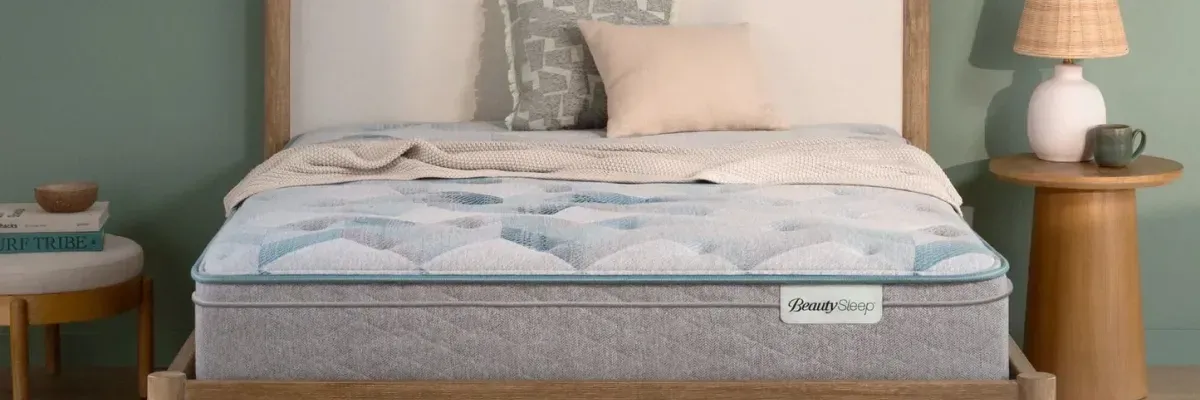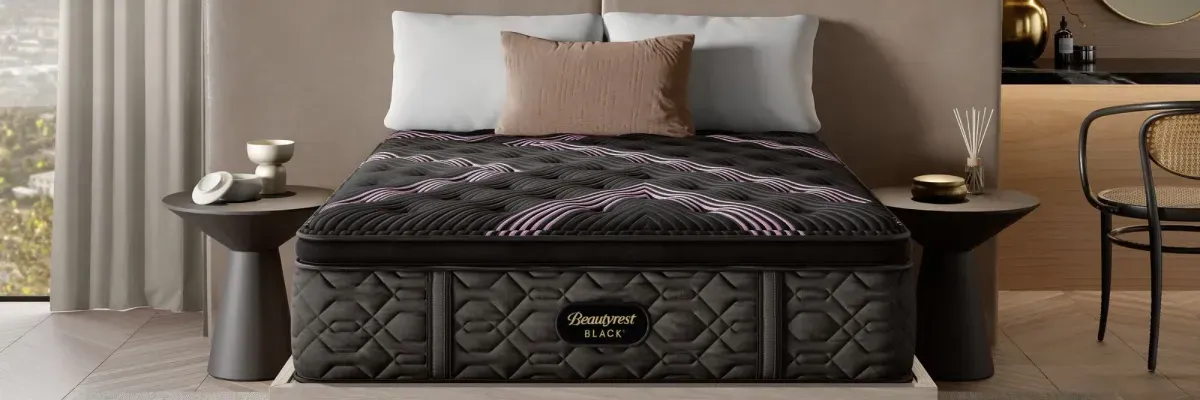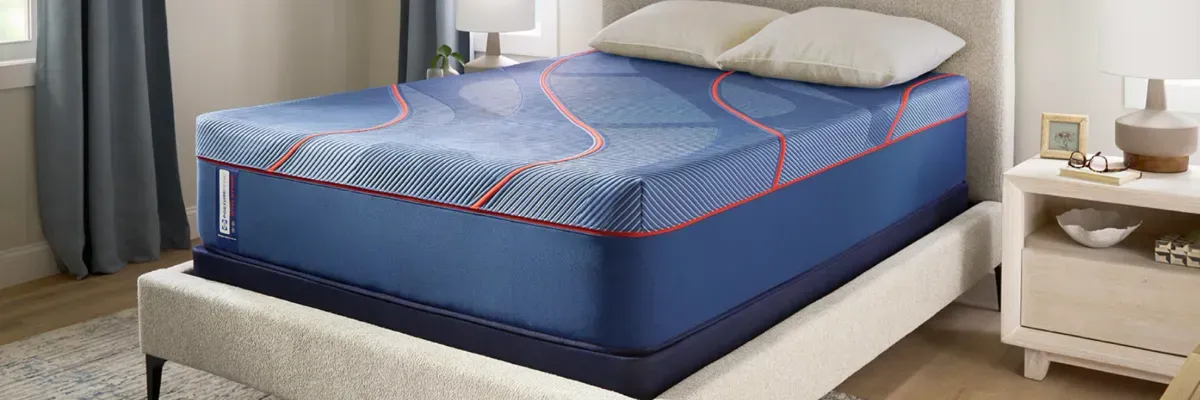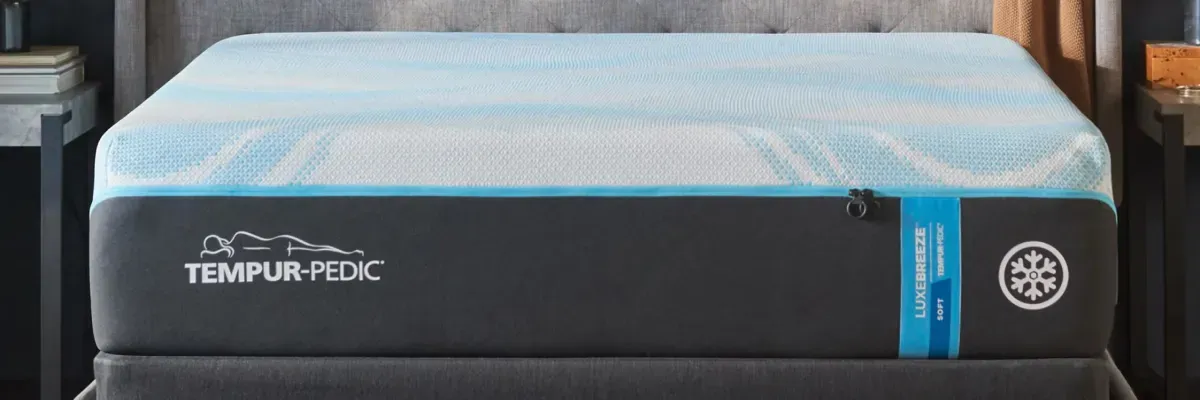How To Choose The Best Mattress For You
Mon Dec 22 2025
A good night’s sleep sets you up for success, physically, mentally, and emotionally. But with the countless mattress options out there, selecting the “right” one can feel overwhelming. The mattress you sleep on influences everything from spinal alignment to temperature regulation, pressure relief, and overall restfulness. Choosing wisely means investing not just in comfort, but in your daily well-being.
This guide from Mattress Direct helps simplify that process. Whether you’re a side sleeper needing pressure relief, a back sleeper needing support, or someone sensitive to heat, we’ll walk you through how to evaluate mattress types, firmness, sleep needs, and lifestyle factors so you can confidently select the mattress that fits you.

Understanding Different Mattress Types
Mattresses come in several core types, each with unique benefits. Understanding how they differ helps you narrow down your best fit.
Innerspring Mattresses
Traditional and widely used, innerspring mattresses rely on a core of metal coils for support, often topped with foam or comfort layers. They’re responsive, bouncy, and generally cooler, a good choice for people who sleep hot or prefer a more classic “springy” feel.
Memory Foam Mattresses
Memory foam mattresses contour to your body, offering excellent pressure relief and support by distributing weight evenly. This makes them ideal for side sleepers or anyone seeking deep cushioning and reduced pressure on joints.
Hybrid Mattresses
Hybrid mattresses combine innerspring support with foam comfort layers. The result: balanced support, pressure relief, and often better temperature regulation, appealing to many types of sleepers, especially those who want a midpoint between firm and plush.
Latex Mattresses
Latex mattresses (natural or synthetic) deliver a resilient, slightly bouncy support that’s often cooler than memory foam and more durable over time. They work well for people who like a more stable yet slightly responsive feel.

How to Choose Mattress Firmness: What Works for Whom
Mattress firmness plays a central role in how comfortable and supportive your sleep surface will feel. The right firmness often depends on sleep position, body type, and individual preferences.
-
Soft /Plush: Great for side sleepers or lighter individuals. Offers contouring comfort and pressure relief, especially for hips and shoulders.
-
Medium/Medium-Firm: A balanced level of comfort and support. Ideal for back sleepers, combination sleepers, or couples with different preferences.
-
Firm: Best for stomach sleepers, heavier individuals, or anyone needing strong support for spine alignment. Prevents excessive sinkage and maintains structure.
Sleep Position & Personal Needs: Matching Mattress to You
Your sleep position and personal needs should heavily influence your mattress choice.
-
Side Sleepers: Benefit from softer to medium mattresses that contour to the shoulders and hips. Memory foam or plush hybrids often work best.
-
Back Sleepers: Need medium to medium-firm mattresses that support spinal alignment while still offering comfort, hybrids or foam mattresses often excel.
-
Stomach Sleepers: Generally prefer firmer mattresses to prevent the hips from sinking too deeply and stressing the lower back. Innerspring or firmer hybrids are often ideal.
-
Combination Sleepers (switch positions): A medium-firm mattress or hybrid offers versatility, support when on the back, comfort when on the side.
Other factors to consider: body weight (lighter vs heavier), partner sleep habits (if sharing a bed), and preferences for bounce vs contouring.

Other Important Considerations Before You Buy
When selecting a mattress, don’t just consider type and firmness, these additional factors can significantly impact comfort and longevity.
-
Temperature/Breathability: If you're a hot sleeper, consider innerspring or hybrid mattresses (with coil airflow) or mattresses with cooling foam layers.
-
Pressure Relief: For joint or back pain, memory foam or hybrid mattresses with contouring layers help reduce pressure points and promote spinal alignment.
-
Motion Isolation: For couples, mattresses with good motion dampening (foam or pocket-coil hybrids) minimize sleep disturbances when one partner moves.
-
Durability and Quality: Look for high-density foams, quality coils, good edge support, and solid warranties when choosing a mattress.
-
Trial Period & Return Policy: Especially important for online purchases, ensure there’s a trial period so you can test the mattress over several nights.

Why Mattress Direct Makes the Mattress Selection Easy
At Mattress Direct, we’re more than a mattress retailer , we’re your sleep partner. We offer a wide selection that spans memory foam, innerspring, hybrid, latex, and adjustable mattresses to match every sleep style. Paired with pillows, bed linens, protectors, and accessories, we help you build a full sleep system tailored to your needs.
Whether you’re shopping online or visiting one of our showrooms, our team is ready to guide you. We believe in transparent pricing, expert recommendations, and letting you test mattresses so you know what feels right.
We carry a selection of all your sleep needs from top brands in the industry such as Beautyrest, Serta, Sealy, Tempur-Pedic, Aireloom, and more, so our customers can experience the best of the best when shopping for mattresses and sleep accessories. We’re committed to helping you through every step, from selecting the right mattress type to testing comfort and building a complete sleep setup with bedding and accessories. Sweet dreams start with the right mattress. Explore our collection and find yours today.
Contact us today or visit your local Mattress Direct showroom in Louisiana or Mississippi.
Related Readings from our blog:
FAQs: How To Choose The Best Mattress For You
How do I know which mattress type is best for me?
Start with your sleep position and comfort preferences. If you like contouring and pressure relief, memory foam or hybrid works well. If you prefer stability and bounce, innerspring or firmer hybrids may be a better fit.
Is a firmer mattress always better?
Not always, while firm mattresses support spine alignment (especially for stomach sleepers), they can be too hard for side sleepers. Choose firmness based on how you sleep, not a one-size-fits-all idea.
What if I’m a hot sleeper?
Look for innerspring or hybrid mattresses with good airflow, breathable covers, or cooling foam layers to prevent overheating.
How important is motion isolation?
Very important if you share a bed, mattresses with foam or specialized coils reduce disturbance when a partner moves.
Should I test a mattress in person?
Yes. Trying different mattresses in-store or using a trial period helps ensure the mattress fits your body, sleep style, and comfort preferences.
